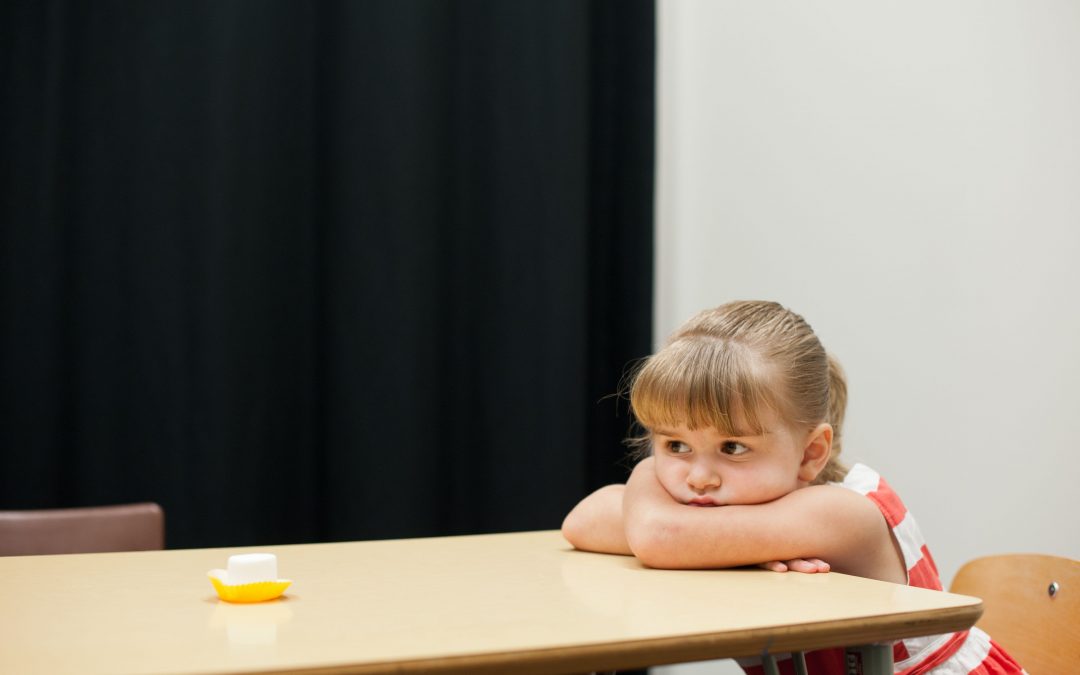By Joanna Kleovoulou, Clinical Psychologist & founder of PsychMatters™
In the late 1960’s a Stanford psychologist Walter Mischel performed “The Marshmallow Experiment” on pre-schoolers to demonstrate the importance of delayed gratification. These children were given the instruction that they can have the marshmallow now, or wait 20 minutes without eating the first one, and will then get another one.
This test observed whether children have the ability to control their urges to meet their desired goal. So what’s the big deal you may ask? Research indicates that a 4-year-old child’s ability to have self-control is a great predictor of self-control as an adult as well as their perceived happiness in life.
So not only will self-control make you a happier person, it also fosters a healthy, confident and contributing member of society.
The good news is that self-control is learnt, which means that with practise, and having parents on board, your child is well on his way to develop self-discipline.
Our ability to manage our emotions and impulses is vital if we want to meet our goals, from having friends at pre-school to pursuing and maintaining a career as an adult.
At my psychology practise at PsychMatters Centre, often parents seek advice on how to address their child’s “misbehaviour.” These children present with:
- Impulse control difficulties
- Anger outbursts
- Tantrums
- Giving up easily
- Impatience
- Self-harming behaviour
- low self-esteem or an inflated esteem
Tips on how to develop Self-Control
Our brain
Our brain is like a muscle and it strengthens throughout life provided it is being used and exercised. Two-year-olds do not have the ability to have self-control as their pre-frontal cortex (the front part of our brain) is not developed. This area only matures in our mid-twenties. Thus we cannot expect our 2-year-old to wait for the biscuit as they do not have the developmental capacity to wait. Use distraction as a tool or your loving connection to teach your child to wait.
Seeking mastery
This is a natural psychological milestone all young children strive to achieve, to feel and achieve. Every time a child has to manage himself he is learning a strategy of self-control. From having the urge to hit back on the playground – and he doesn’t – to the do the opposite of the urge to quit when the going gets tough learning how to dribble the football. This requires perseverance and never giving in to the urge. By repeatedly wanting something badly enough your child will learn to regulate himself.
Emotionally responsive parents
Parents who are able to respond to their child’s physical and emotional needs help their baby internalise a sense of trust in their world. Every time your baby is comforted when upset, every time your baby cries when he is hungry and he is then fed, he learns the notion of trust and secure bonding occurs. With warm, repetitive and consistent responsiveness to your child’s needs, neural pathways develop in the brain to calm down your child, lower anxiety experienced, regulate your baby’s emotions which will in turn allow your child to soothe himself in times of crisis.
Role modelling
When you as a parent react angrily, punitively, or you cannot manage your own emotions, taking your child’s “bad” behaviour as a personal attack, your child learns that his environment is chaotic, stressful and that he cannot rely on significant others to calm him. This leaves him feeling alone, uncontained and “messy” to deal with his own difficulties and unable to calm himself down as he has never observed, nor experienced a constructive way to do so. If you are unable to manage your own anxieties too, and you act out on those fears by over-protecting your child, your child will never gain the neural pathways to learn to stay calm.
Setting limits firmly and kindly
When you give your child boundaries, your child learns that his world is a safe place to manoeuvre in and that he can rely on your guidance. Set limits in a firm yet kind way without being forceful or autocratic as this fosters oppositional behaviour or fear towards you which breaks your relationship with your child down.
Repetition
Your child only learns self-control when there is a goal, and will only be willing to give something up for something else they want more of. When this is repeated, your child builds neural pathways in the prefrontal cortex. Finding teachable moments to help your child attain self-control is important. Giving your child everything they want immediately does not teach delayed gratification, nor self-control.
If you or your child are struggling to control yourselves, act on your emotions, or you would like to master emotional control, contact PsychMatters for individual consultations, parental guidance, adult group skills therapy, or book your child on the upcoming ConfidentKidz Workshop now!
Contact PsychMatters on 0114503576 or info@psychmatters.co.za


